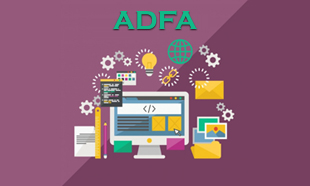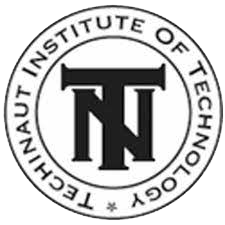0
Embark on your journey to financial mastery with our Advanced Diploma in Financial Application at KS Computer Institute, VPO Dorangla, Gurdaspur, Punjab. Learn from Techinaut Institute of Technology's esteemed franchise. Enroll today for a prosperous career!
ADVANCE DIPLOMA IN FINANCIAL APPLICATION
In today's digital era, proficiency in financial applications is crucial for individuals aspiring to excel in accounting and finance-related careers. "KS Computer Institute," a franchise of "Techinaut Institute of Technology" located in VPO Dorangla, Gurdaspur, Punjab, offers a one-year Advance Diploma in Financial Application (ADFA) course. This comprehensive program equips students with the necessary skills and knowledge to effectively utilise financial software and tools. This article provides an in-depth exploration of the ADFA course curriculum, covering topics ranging from basic computer concepts to advanced financial management techniques.
COURSE OVERVIEW:
BASIC OF COMPUTER:
The course begins with an introduction to the fundamental concepts of computers. Students learn about the history of computers, components of a computer system, input and output devices, storage devices, and basic computer operations. Understanding these foundational principles sets the stage for deeper exploration into financial applications.
COMPUTER APPRECIATION:
In this module, students gain an appreciation for the role of computers in the financial sector. They explore how computers have revolutionised financial processes and operations, from basic bookkeeping to advanced financial analysis. Case studies and real-world examples illustrate the transformative impact of technology on financial management practices.
COMPUTER ORGANISATION:
Students delve into the architecture and organisation of computers, gaining insights into how hardware components interact to execute instructions and process data efficiently. Topics include CPU architecture, memory hierarchy, input-output organisation, and storage systems. Understanding computer organisation lays the groundwork for effectively utilising financial software applications.
OPERATING SYSTEM:
Understanding operating systems is essential for navigating and managing computer resources effectively. Students explore operating systems like Windows, Linux, and macOS. They learn about file management, multitasking, memory management, and user interface features to optimise their computing experience.
MS WORD PROCESSING:
Proficiency in word processing is essential for creating and formatting financial documents, reports, and correspondence. Students learn to use Microsoft Word, a leading word-processing software. They acquire document creation, formatting, editing, and printing skills, ensuring clarity and professionalism in financial communications.
MS SPREADSHEET PACKAGE:
Excel proficiency is indispensable for financial analysis, budgeting, and data management. Students master Microsoft Excel, gaining expertise in creating spreadsheets, using formulas and functions, generating charts and graphs, and analysing financial data. They also cover advanced features such as pivot tables and macros.
MS PRESENTATION PACKAGE:
Practical presentation skills are vital for persuasively communicating financial information and insights. Students learn to use Microsoft PowerPoint to create professional presentations. They explore design principles, slide layouts, animation effects, and multimedia integration to effectively convey financial data and analysis.
INTRODUCTION TO THE INTERNET:
The Internet is valuable for accessing financial information, research, and tools. Students receive an introduction to the Internet, learning about web browsers, search engines, and online resources relevant to finance. They explore financial websites, databases, and research portals to enhance their knowledge and skills.
E-MAIL:
E-mail is a ubiquitous communication tool in business, including the financial sector. Students learn to use e-mail effectively for sending, receiving, and managing financial correspondence. They explore e-mail etiquette, attachment handling, and security best practices to ensure professional communication.
INTRODUCTION TO TALLY:
Tally is a popular accounting software used in businesses for financial management and reporting. Students are introduced to Tally and learn about its features, functionalities, and applications in various industries. They explore the interface, navigation, and basic operations of Tally software.
ADMINISTRATION IN TALLY:
Students delve into the administrative aspects of Tally, including user management, security settings, and data backup procedures. They learn to create and manage user accounts, assign access levels, and implement data protection measures to safeguard financial information.
MANAGING GROUPS, LEDGERS, AND VOUCHERS:
Tally enables efficient management of financial transactions by creating and organising groups, ledgers, and vouchers. Students learn to create and modify groups and ledgers based on organisational requirements. They also gain proficiency in voucher entry, verification, and reconciliation processes.
COST CENTERS AND COST CATEGORIES:
Cost centres and cost categories are crucial in tracking and allocating organisational expenses. Students learn to create and manage cost centres and cost categories in Tally. They explore how cost analysis facilitates budgeting, decision-making, and performance evaluation in financial management.
INTRODUCTION TO BUDGETS:
Budgeting is essential for organisations' financial planning and control. Students receive an introduction to budgeting concepts and techniques. They learn to create, modify, and monitor budgets using Tally software. Practical exercises enable students to apply budgeting principles to real-world scenarios.
INTRODUCTION TO VOUCHER:
Vouchers are documentary evidence of financial transactions recorded in Tally. Students learn about different types of vouchers, such as payment vouchers, receipt vouchers, and journal vouchers. They explore voucher entry, editing, and deletion procedures to ensure accuracy and compliance in financial recording.
CURRENCIES (MULTIPLE CURRENCIES AND FOREIGN EXCHANGE):
In today's global economy, businesses often deal with multiple currencies and foreign exchange transactions. Students learn to configure and manage multiple currencies in Tally. They explore features such as exchange rates, currency conversions, and foreign currency transactions to handle international financial operations.
INVENTORY INFORMATION:
Inventory management is critical for businesses that buy, sell, or manufacture goods. Students learn to maintain inventory information in Tally, including stock items, units of measure, and stock groups. They also explore inventory valuation methods and inventory tracking techniques to optimise stock control and reporting.
VOUCHER ENTRY:
Voucher entry is the process of recording financial transactions in Tally. Students gain hands-on experience in voucher entry for various transactions, including sales, purchases, payments, and receipts. They learn to navigate the voucher entry screen, enter transaction details, and ensure data accuracy and integrity.
DISPLAYING INFORMATION FROM TALLY:
Tally provides various reporting and analysis tools to display financial information effectively. Students learn to generate and customise reports, statements, and dashboards in Tally. They explore drill-down, filtering, and sorting features to extract meaningful insights from financial data.
INTRODUCTION TO TAXATION:
Taxation is a crucial aspect of financial management for individuals and businesses. Students receive an introduction to taxation principles, regulations, and compliance requirements. They explore different types of taxes, such as income tax, sales tax, and goods and services tax (GST), and their implications for financial decision-making.
INTRODUCTION TO PAYROLL:
Payroll management involves calculating and disbursing employee salaries, wages, and benefits. Students receive an introduction to payroll processing and management using Tally. They learn to configure payroll settings, define salary structures, and generate payroll reports. Practical exercises cover payroll calculations, deductions, and statutory compliance.
CONCLUSION:
The Advance Diploma in Financial Application (ADFA) course offered by KS Computer Institute equips students with comprehensive skills and knowledge in financial software applications and tools. The curriculum covers various topics essential for success in accounting and finance-related careers, from basic computer concepts to advanced financial management techniques. By combining theoretical learning with hands-on practical exercises using Tally software, students emerge with a competitive edge in the job market and the ability to excel in various roles within the financial sector.


